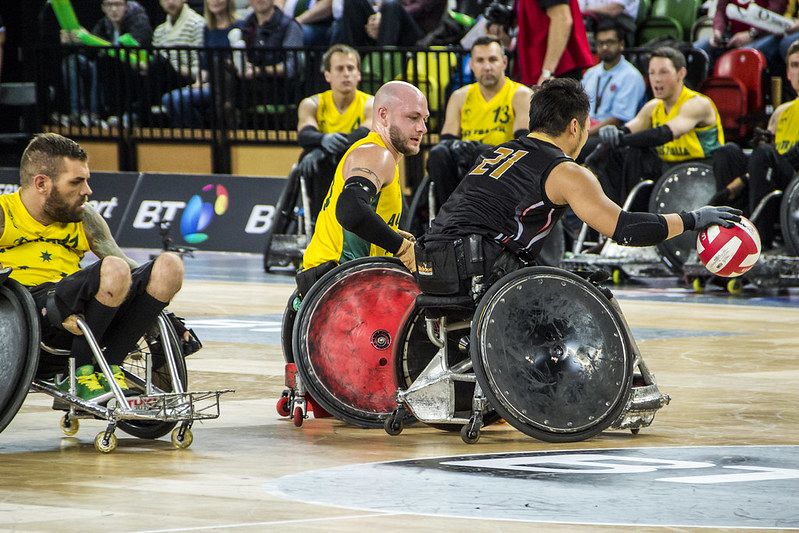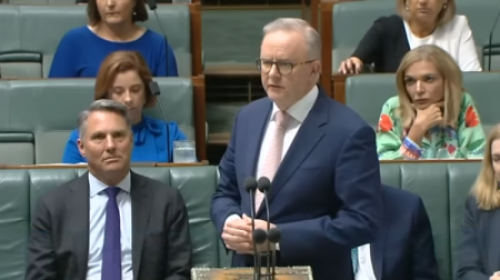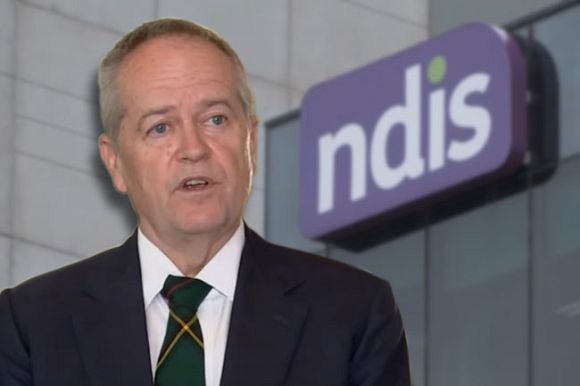The fact that only Paralympians are elevated to positions of power demonstrates that not all people with disabilities are equal, writes Melissa Marsden.
The theme for the International Day of People with Disability 2024 (IDPwD) is ‘Amplifying the leadership of persons with disabilities for an inclusive and sustainable future’.
Held annually on 3 December, this year, it coincides with the Paralympic Games, the global stage for amplifying the sporting skills of Paralympians.
Outside the Paralympics, people with disabilities have been linked with welfare dependency and branded as victims of abuse, neglect, or, as evidenced by media coverage of the National Disability Insurance Scheme, fraud or misconduct.
These binary media narratives have bombarded the media landscape, each amplifying a particular agenda that places disability on a sliding scale from superhuman and inspirational to victims and freeloaders.
Amplification of disabled voices outside the Paralympics has been decidedly less extensive, and the Australian government’s NDIS reforms have further exacerbated tensions between people with disabilities and the political domain.
While Greens Senator Jordan Steele-John labelled the reforms a “betrayal,” National Disability Insurance Agency chair and Paralympian Kurt Fearnley said he thought this was “an exciting time for the scheme”.
Paralympic Champions: The only voice politicians want to hear?
It is not the first time the opinions of Paralympians have been given greater weight than disabled voices outside this sphere. Fearnley’s position of power within the NDIA and as a Paralympian with a significant media profile undoubtedly stains his positive tone.
In 2022, Paralympian and former Australian of the Year Dylan Alcott declared the NDIS was “great” and that negative discourse on the scheme:
"Can be very, very, very dangerous because it paints us as people with disability, on the NDIS … as bludgers … getting handouts, taking the money … and it's just not true”.
Whilst Alcott is precisely right, by elevating the voices of only Paralympians who have by the very fact they reached such a high level of sporting success, been both privileged and hold media and social value, this neglects the very real need for many people with disabilities who are locked out of employment (whether it be because of their physical impairment or social prejudice) to rely on government support.
There is a distinct disparity between media representation of the Olympics and Paralympics and media coverage dedicated to Paralympians compared to people with disabilities outside this sphere.
The result of this disparity in media representation of the Paralympics and Paralympians is the development of the narrative that the only people with disabilities who are worthy of being elevated to leadership positions are Paralympians.
The fact that only Paralympians are elevated to positions of power demonstrates that not all people with disabilities are equal. The disparity between mainstream media representation of female and male athletes only exacerbates this inequality further.
By only amplifying the voices of successful Paralympians, the media sends the message to society that for people with disabilities to be considered valuable, is to be inspiring to disabled and non-disabled audiences. Without this media value, people with disabilities are either undesirable or neglected.
A way forward
Normalising the Paralympics and Paralympians has the potential to bolster inclusion, and it may also minimise the challenges and inequities faced by people with disabilities. The 2024 Winning Medals with Equity and Diversity: A Symposium Championing Equity and Diversity in Paralympic Sports highlighted that “people with lived experience have value.” However, by focusing only on Paralympic success stories, the media reinforces the narrative that people with disabilities must be successful to be valued.
These narratives reinforce disabling binaries of valuable and invaluable members of society. By only championing the successes of Paralympians, the media marginalises many people with disabilities, who are then forced to separate themselves in accordance with these binaries to receive consideration.
There are so many people with disabilities whose voices deserve amplification, their stories yet to be told or amplified to the point where they aren’t just tokens brought out when media or politicians want to appear inclusive.
If mainstream media are to successfully amplify the voices of people with disabilities to achieve real equity, the perpetuation of disabling discourses must also be addressed. Without such reflexivity, people with disabilities will continue to be subject to the disabling effects of stereotypes and ableism.
Melissa Marsden is a freelance journalist and PhD candidate at Curtin University. You can follow Melissa on Twitter @MelMarsden96, on Bluesky @melissamarsdenphd or via Melissa's website, Framing the Narrative.
 This work is licensed under a Creative Commons Attribution-NonCommercial-NoDerivs 3.0 Australia License
This work is licensed under a Creative Commons Attribution-NonCommercial-NoDerivs 3.0 Australia License
Support independent journalism Subscribe to IA.














